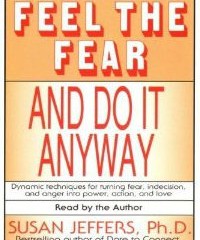In February 2009, I started playing acoustic gigs again after a very long break. I chose the venues I knew and loved best: the Regal Room, the Bedford, the Cobden Club (alas no more), the Troubadour. I had a case for my keyboard that rendered it nearly-unliftable, but would protect it well in the backs of cars and on rickety backstage staircases. I had all the other electrical accoutrements: stand, power supply, sustain pedal, and was sad that none of it came in brighter colours. More: I had flyers and business cards and a MySpace, and that was progress, because when you start on your own after being in a band for many years, you realise all the things that other people did so well that you now have to learn for yourself.
So I had all the bits and pieces and the desire to get onstage and perform. I had a growing collection of songs, too, some of which made it to I Am Not The Night and others which served their developmental purpose before sliding resignedly onto the cutting room floor. I also had, however, a problem of a different kind, and one that made itself apparent with a kind of awful and unavoidable clarity.
I had stage fright. I’d probably always had stage fright, and just managed to hide it really well. My friend Christian, who saw my first gig, can when inclined do an impression of my performance (me shaking like a rescue dog, whispering inaudibly into the mic with an expression of undiluted horror). That’s understandable for a first gig; why, though, did I not deal with it properly over the subsequent years? I remember a whole string of Pizza on the Park dates where I could barely come out of the dressing room before the show, of crazed pre-performance insomnia, of hysterical self-hypnosis in the backs of taxis with some downloaded mp3 called Stage Confidence blaring from my iPod. The gigs themselves were always fine and enjoyable – but shot through with the kind of exhaustion and paranoia that goes with a state of high anxiety; thus, not ideal.
Some things I tried, over the years, to combat stage fright:
1. Beta-blockers (where I could see three of everything; not a success)
2. Rescue remedy
3. Proper hypnosis (good up to a point, but then we meandered into the world of past-life regression and I ended up talking about my previous existence as a man named Pedro who had been injured by cannon-fire, fairly conscious that I was making it up as I went along)
4. Yoga
5. Vodka and apple juice
With the possible exception of noble yoga, it became clear, as I reexamined this palette of little helpers, that they were, like cards and flyers, just accessories. They weren’t going to solve the problem, just mute it temporarily. I’d also lost my voice completely, a result of classroom teaching with little idea of how to use my voice in that context. But I wanted – I really wanted – to play, to make music despite of this; I didn’t want to be the kind of artist that hides in a studio. (I wish Kate Bush had played live, all these years.)
So I first went to see a woman called Patsy Rodenburg, author of The Right To Speak and Head of Voice at the National Theatre. She showed me how to stand (don’t lock your knees), how to speak, how not to be intimidated in the classroom. And then I went to see my singing teacher, Nicky-Jane, who first taught me when I was fifteen. Sometimes the only solution is to start all over again: using the same books I’d used when I began, I sang the same warm-up scales and arpeggios, coaxing my voice back from wherever it had disappeared to.
Later I played a handful of songs to Nicky-Jane, and she made a suggestion which I found very helpful, and to which I’ve adhered ever since.
‘Why don’t you write something with a strong pulse to open the set with?’ she said. ‘It’ll make you feel more confident.’ 
So I went home and wrote Self Help. With its 4/4 signature and straight-played chords, it demanded a bit of strength from my hands, and regularised my breathing. It also was an anthem to not being afraid; that in itself was (and is) comforting to reiterate. I had in my head an image from the 1978 film Coma in which a woman, Dr Wheeler, walks alone down a sinister, deserted hospital corridor. Fittingly, maybe, she has to overcome the intense paranoia and horror of her situation in order to escape unharmed and expose a conspiracy within the hospital. I, too, wanted to ‘feel the fear and do it anyway.’ Not that I had anything as problematic as organ-harvesting to contend with. But the more gigs I played, the easier it got.
